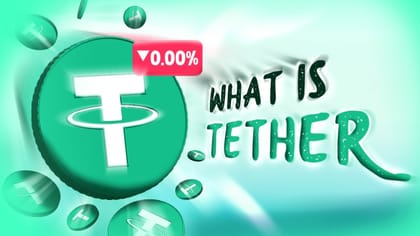Some legal experts claim that the new verdict proves that SEC can lose a lawsuit.
In a noteworthy twist, the United States Court of Appeals for the District of Columbia Circuit nullified a previous decision by the US Securities and Exchange Commission (SEC) concerning the classification of SPIKES Index securities.
The court decided on July 28th to label SPIKES Index as securities futures rather than mere futures, thus opposing the SEC's former judgment and branding it as "arbitrary and capricious."

Did you know?
Want to get smarter & wealthier with crypto?
Subscribe - We publish new crypto explainer videos every week!
What Is Tether? (USDT SIMPLY Explained With Animations)


The new verdict centers around the SEC's 2020 ruling to exclude the SPIKES Index from the securities futures category. The step intended to stimulate competition between volatility indexes by sidestepping substantial taxation and other legal responsibilities typically connected to securities.
Nevertheless, Chief Judge Sri Srinivasan argued that the SEC's choice to exempt was “arbitrary and capricious,” asserting that the SEC "failed adequately to explain its rationale and to consider an important aspect of the problem." The court further emphasized that the SEC didn't weigh the potential confusion the exemption might cause among market participants.
As a result of this reversal, SPIKES Index futures are now reclassified as securities futures, granting market players a three-month window to conclude their transactions.
The Clark County Bar Association clarifies an "arbitrary or capricious" act as unfounded, oppressive, or an unexpected shift in mindset without clear motivation. This ruling may indicate the future course of legal confrontations involving the SEC and cryptocurrency firms.
Anonymous attorney "MetaLawMan" highlighted that two judges from the panel are also studying Grayscale's lawsuit against the SEC's decision that refused its appeal to convert its Grayscale Bitcoin Trust into a spot Bitcoin exchange-traded fund (ETF).
Eric Balchunas, an ETF analyst at Bloomberg, suggests that the ruling indicates the SEC's susceptibility to losing a lawsuit. This stance is considerably favorable to the whole crypto industry and Ripple especially, which recently secured a legal win when the court ruled that XRP is not a security when sold through crypto exchanges to retail investors.






















